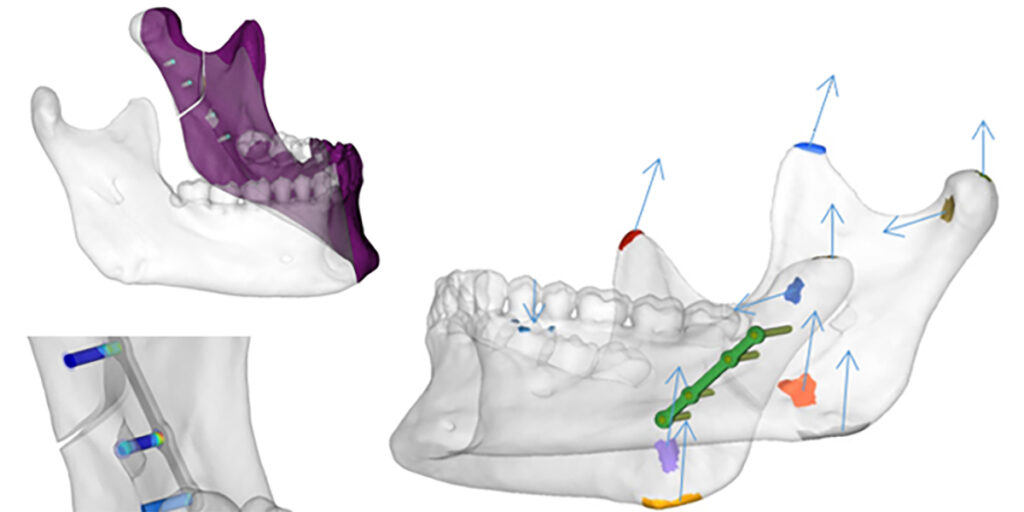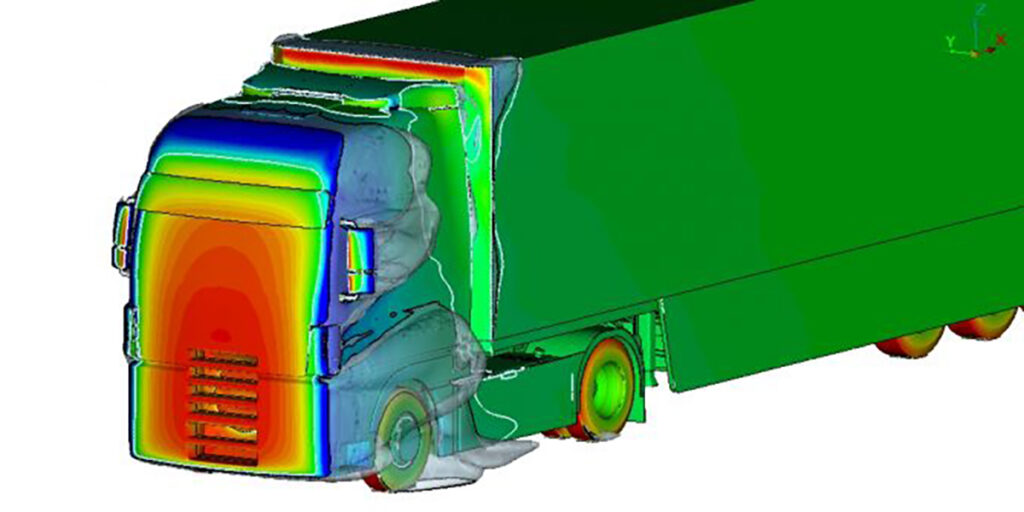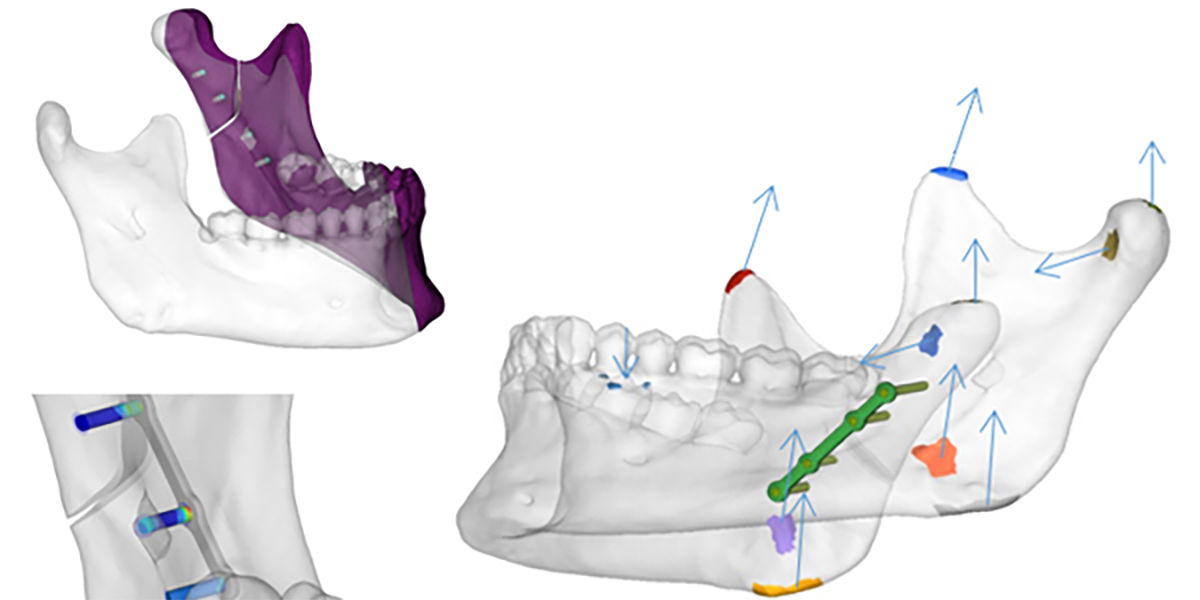
Author: Miloslav Valčo

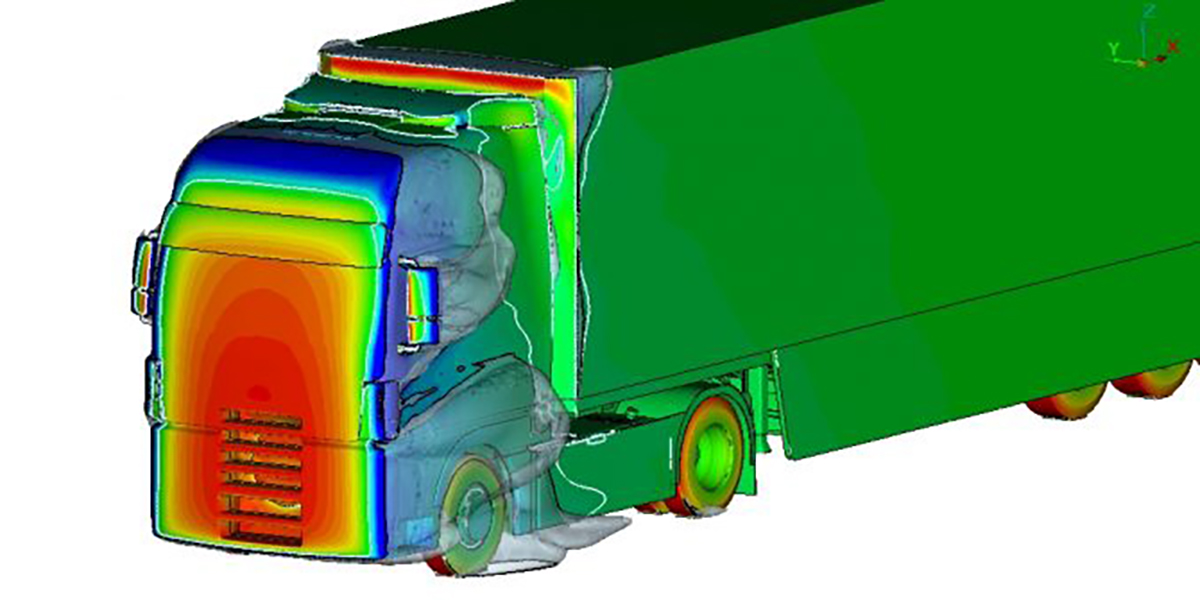
NGI Search 4th Open Call

NGI Search 3rd Open Call
NGI Search is a cascade funding project designed to help beneficiaries, such as start-ups, scale-ups, SMEs, and mid-sized companies to adopt and develop digital innovation in the domains of:
- Intelligent Voice Based Assistants
- Natural Language Processing
- Semantic Analysis
- Social computing
- Data visualization
- New ways of discovering and accesing information
With five European partners contributing in the project, NGI Search will provide five Open Calls by the spring 2024 and distribute up to 150,000 € to each project, with the support of a dedicated team, an Advisory Board and 10 added-value services.
WHO CAN APPLY?
Academic researchers, hi-tech startups and SMEs can benefit from the NGI Search project based on five Open Calls. Each call will onboard a new cohort of projects to join the mentoring programme which helps implementing and adopting their projects, through the following added-value services:
- Technology Services: Mentoring and Advice, Beta Testing Campaigns, Link to Standards and Foundation
- Business Services: Market Readiness, Pitching Training, Business Modeling and Coaching
- Innovation Services: Open Source Licensing, Market Landscaping and Research, Open Science Advice, Content Creation Support for Showcasing Results
NGI SEARCH OPEN CALLS
Open Call #4: December 2023 & January 2024
Open Call #5: March & April 2024
Informácie k otvorenej výzve NGI Search
The Open Call deadline is the 1st of February 2023, at 17:00 CET
Selected projects will benefit in a number of ways:
- Joining the NGI SEARCH Support Programme with a duration of up to 12 months
- Receiving funding of up to €50,000 if the applicant is a natural person applying on their behalf or up to €150,000 if the applicant is applying as an organisation
- Option to receive Technical, Business and Innovation mentoring provided by the NGI Search project partners
For more information follow the link HERE

EuroHPC JU Call for Proposals for Regular Access Mode
Types of Access: EuroHPC Regular Access
Final report: within three months of project conclusion
Access type: one year regular access
Termíny uzávierok pre priebežné vyhodnotenie žiadostí o prístupu k zdrojom v roku 2023:
3 November 2023 – 10:00 AM Luxembourg time
Resource Allocation
The Call for Proposals for EuroHPC JU Regular Access Mode is continuously open, with a maximum time-to-resources-access (start-date) of 4 months after the cut-off date.
Project Extension
The allocations are granted for one (1) year with the option for projects to apply for a continuation. This continuation shall be duly justified, limited to a maximum of one (1) additional year, and will depend on an assessment of their ongoing awarded project.
Applicants (Principal Investigators) can only have one Regular Access awarded at any given time.
Computing Resources
The computer systems and their operations provided for the Regular Access call by EuroHPC JU Hosting Entities are: Vega, located in Slovenia, MeluXina, located in Luxemburg, Karolina, located in the Czech Republic, and Discoverer, located in Bulgaria.
Eligible Researchers
Researchers from academia, research institutes, public authorities and industry established or located in an EU Member State or in a country associated to Horizon 2020 are eligible to apply (for further details see Section 2– “Eligibility criteria” in the Regular Access call “Terms of Reference” document).
Application Tracks for Regular Access Mode
The Scientific Access Track Open to all fields of science, will call for applications with a case to enable progress of science in the domains covered. These applications are expected to be able to justify the need for large allocations in terms of compute time, data storage and support resources because they are significantly contributing to the progress in their domain. The Scientific Track prioritises 75% of the total resources available at each cut-off period.
The Industry Access Track Prioritises 20% of the total resources available allocated for the representative, while the main solver must be of the industry.
The Public Administration Access Track Prioritises 5% of the total resources available for this cut-off period for proposals with a Principal Investigator from the public sector.
The EuroHPC JU Access Resource Committee, composed of leading international scientists and engineers, ranks the proposals received and produces a recommendation to award EuroHPC JU resources based on scientific and technical excellence.

ADMA TranS4Mers ACCELERATION PROGRAMME
Discover unique opportunities to kick-start your digitalisation journey with top-quality services and training tailored to your individual business needs.
ADMA TranS4Mers is a project funded via Horizon2020 to anchor a future-proof and sustainable Manufacturing industry in Europe.

The ADMA TranS4MErs Acceleration Programme offers vouchers and direct funding to design and implement digital Transformation Plan and boost journey of SMEs towards becoming a Factory of the Future in two stages: Design and Revamp.
Vouchers are allocated on a first come first serve criteria. Applications are open from 1 September with intermediate deadlines on 2 November, 16 November, 30 November, and 14 December 2022, 4 January and 18 January 2023.
WHO CAN APPLY
The Calls are open to manufacturing SMEs that comply with the rules defined by the European Commission:
- With 1-250 employees
- Ročný obrat < 50 miliónov EUR alebo ročná účtovná súvaha < 43 miliónov EUR
- Sú aktívne v oblasti pokročilej výroby, využívajúc nové poznatky a tiež inovatívne a špičkové technológie, ako je robotika, 3D tlač, umelá inteligencia, vysokovýkonná výpočtová technika a modelovanie, na výrobu komplexných produktov
- Acting as technology or service adopters improving manufacturing processes and products
- Based in a European Union Member State (Austria, Belgium, Bulgaria, Croatia, Republic of Cyprus, Czech Republic, Denmark, Estonia, Finland, France, Germany, Greece, Hungary, Ireland, Italy, Latvia, Lithuania, Luxembourg, Malta, Netherlands, Poland, Portugal, Romania, Slovakia, Slovenia, Spain, Sweden)
- For more information follow the link HERE

EuroHPC JU Call for Proposals for Extreme Scale access mode
Opening date: 28 September 2022
Deadline model: Multiple cut-off.
Termíny uzávierok pre priebežné vyhodnotenie žiadostí o prístupu k zdrojom: 28. apríl 2023, a 28. september 2023.
Táto výzva sa zameriava na aplikáciu HPC v oblasti inovatívneho výskumu s akcentom na vedecký prínos a jeho dopad. Výzva je zameraná na všetky oblasti vedy, otvorený výskum v priemysle a aplikácie vo verejnom sektore, ak žiadateľ odôvodní potrebu využiť extrémne veľkú kapacitu z hľadiska výpočtového času, ukladania dát a využitia podporných zdrojov.
The call is continuously open, with a maximum time-to-resources-access of 3 months after the date of cut-off.
Pre túto výzvu sú poskytnuté superpočítače EuroHPC – Lumi so sídlom vo Fínsku a Leonardo so sídlom v Taliansku. Viac podrobností o poskytnutých zdrojoch HERE.
Submission of applications will be done through the PRACE-calls portal. The call is open for all categories of applications (Scientific, Industry and Public Sector) defining three distinctive tracks respectively for each category.
Evaluation
The evaluation will be based on the technical review and scientific peer-review of all proposals. Award decisions will follow the ranking of proposals according to three criteria of: excellence, innovation and impact, and quality of implementation.
The allocations will be granted for a period of one year.
EuroHPC Extreme Scale Access the first deadline details - December 15th, 2022
Typ prístupu: EuroHPC JU Call for Proposals for Extreme Scale access mode
Opening Date: 28/09/2022 @ 00:01 Luxembourg Time
Closing Date: 15/12/2022 @ 10:00 Luxembourg Time
Communication of allocation decision: February 2023
Allocation period for awarded proposals: 01/03/2023 – 28/02/2024
Submission of Final Reports: Within three months after the completion of the project
Type of Access*: Single-year (12 months) or Multi-year (24 months)
All proposals consist of 2 parts:
- Online form
- Project scope and plan
The Call for Proposals for EuroHPC JU Extreme Scale Access Mode is continuously open, with a maximum time-to-resources-access (start-date) of 3 months after the date of cut-off.
Project Extension
Zdroje sú udelené na jeden rok s možnosťou požiadať o pokračovanie projektu. Toto predĺženie musí byť riadne odôvodnené, je obmedzené na maximálne jeden ďalší rok a bude závisieť od posúdenia prebiehajúceho schváleného projektu.
Applicants (Principal Investigators) can only have one Extreme Scale Access awarded at any given time.
The Extreme Scale access mode is designed to serve research domains, industry open R&D and public sector applications call and is intended for applications with high-impact, high-gain innovative research, justifying the need for and the capacity to use extremely large allocations in terms of compute time, data storage and support resources. This access mode distributes resources, from the EuroHPC pre-exascale systems.
Applicants requesting access as a continuation to a running EuroHPC JU Extreme Scale Access must present, along with their application, the corresponding progress or final reports, using the templates available online on “Information for Awarded Projects”.
The computer systems and their operations provided for this Extreme Scale call by EuroHPC JU Hosting Entities are: Leonardo, located in Italy and LUMI, located in Finland.
Eligible Researchers
Researchers from academia, research institutes, public authorities and industry established or located in a Member State or in a country associated to Horizon 2020 are eligible to apply (for further details see Section 2– “Eligibility criteria” in the Extreme Scale Access call “Terms of Reference” document).
This Extreme Scale access mode offers three distinctive application tracks:
The Scientific Access Track The Scientific Track, open to all fields of science, will call for applications with a case to enable progress of science in the domains covered. These applications are expected to be able to justify the need for large allocations in terms of compute time, data storage and support resources because they are significantly contributing to the progress in their domain. The Scientific Track prioritises 75% of the total resources available at each cut-off period.
The Additionally, the call includes an Industry Access Track and the Public Sector Track that Prioritises 20% and 5% respectively of the total resources available for this cut-off period for proposals with a Principal Investigator from industry or a public sector organization respectively.
The EuroHPC JU Access Resource Committee, composed of leading international scientists and engineers, ranks the proposals received and produces a recommendation to award EuroHPC JU resources based on scientific and technical excellence.
DOKUMENTY TÝKAJÚCE SA VÝZVY sú k dispozícii HERE.
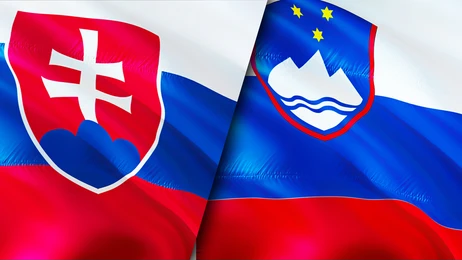
Twinning collaboration between the Slovenian and Slovak NCCs
Based on a recommendation by Castiel CSA, which coordinates the activities of national competence centers within the EuroCC project, Slovakia started a collaboration with its Slovenian partner. The main topic is training activities and both countries will provide a series of courses for attendees from both countries. The partnership will also promote the exchange of ideas and experiences and further joint activities.
Twinning je typ spolupráce, pri ktorej dvaja alebo viac rovnocenných partnerov poskytuje svoju expertízu pre vzájomné obohatenie. Každý z partnerov pri tom vyniká inými kompetenciami a navzájom sa tak dopĺňajú. Slovinsko a Slovensko majú na medzinárodnom poli dlhodobo veľmi dobré vzťahy a sme radi že ich v rámci projektu EuroCC môžeme začať budovať aj v oblasti vysokovýkonného počítania.
Spolupráca začala výmenou skúseností s organizovaním vzdelávacích aktivít a prácou s malými a strednými podnikmi. Pokračovať bude výmenou online kurzov, z ktorých prvé sa uskutočnia už v máji a v júni 2022 a budú k dispozícii účastníkom z oboch krajín. Kurz “Neurónové siete s knižnicou TensorFlow” poskytnú školitelia zo slovenského NCC a uskutoční sa 25. – 26. 5. 2022. Kurz “GPU programovanie s CUDA” poskytnú slovinský lektori 20. – 21. 6. 2021. Spolupráca bude pokračovať na jeseň kurzami o paralelnom programovaní vo Fortran-e a o veľkých dátach v prostredí Spark-Hadoop (detaily zverejníme neskôr). Viac informácií a registráciu na kurzy nájdete tu:
Course Neural Networks with TensorFlow
Course GPU programming in CUDA
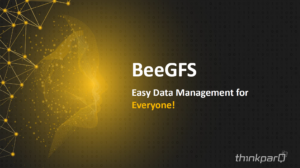 BeeGFS in Practice — Parallel File Systems for HPC, AI and Data-Intensive Workloads 6 Feb - This webinar introduces BeeGFS, a leading parallel file system designed to support demanding HPC, AI, and data-intensive workloads. Experts from ThinkParQ will explain how parallel file systems work, how BeeGFS is architected, and how it is used in practice across academic, research, and industrial environments.
BeeGFS in Practice — Parallel File Systems for HPC, AI and Data-Intensive Workloads 6 Feb - This webinar introduces BeeGFS, a leading parallel file system designed to support demanding HPC, AI, and data-intensive workloads. Experts from ThinkParQ will explain how parallel file systems work, how BeeGFS is architected, and how it is used in practice across academic, research, and industrial environments. When a production line knows what will happen in 10 minutes 5 Feb - Every disruption on a production line creates stress. Machines stop, people wait, production slows down, and decisions must be made under pressure. In the food industry—especially in the production of filled pasta products, where the process follows a strictly sequential set of technological steps—one unexpected issue at the end of the line can bring the entire production flow to a halt. But what if the production line could warn in advance that a problem will occur in a few minutes? Or help decide, already during a shift, whether it still makes sense to plan packaging later the same day? These were exactly the questions that stood at the beginning of a research collaboration that brought together industrial data, artificial intelligence, and supercomputing power.
When a production line knows what will happen in 10 minutes 5 Feb - Every disruption on a production line creates stress. Machines stop, people wait, production slows down, and decisions must be made under pressure. In the food industry—especially in the production of filled pasta products, where the process follows a strictly sequential set of technological steps—one unexpected issue at the end of the line can bring the entire production flow to a halt. But what if the production line could warn in advance that a problem will occur in a few minutes? Or help decide, already during a shift, whether it still makes sense to plan packaging later the same day? These were exactly the questions that stood at the beginning of a research collaboration that brought together industrial data, artificial intelligence, and supercomputing power.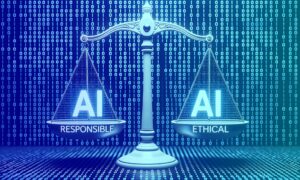 Who Owns AI Inside an Organisation? — Operational Responsibility 5 Feb - This webinar focuses on how organisations can define clear operational responsibility and ownership of AI systems in a proportionate and workable way. Drawing on hands-on experience in data protection, AI governance, and compliance, Petra Fernandes will explore governance approaches that work in practice for both SMEs and larger organisations. The session will highlight internal processes that help organisations stay in control of their AI systems over time, without creating unnecessary administrative burden.
Who Owns AI Inside an Organisation? — Operational Responsibility 5 Feb - This webinar focuses on how organisations can define clear operational responsibility and ownership of AI systems in a proportionate and workable way. Drawing on hands-on experience in data protection, AI governance, and compliance, Petra Fernandes will explore governance approaches that work in practice for both SMEs and larger organisations. The session will highlight internal processes that help organisations stay in control of their AI systems over time, without creating unnecessary administrative burden.MEMO98

MEMO98
MEMO98 is a non-profit non-government organisation that has been monitoring the media in context of elections and other events for more than 20 years, and has carried out its activities in more than 50 countries. Recently, the organisation has also been dealing with the impact of social media on the integrity of electoral processes.
The information environment has significantly changed in recent years, especially due to the advent of social media. Apart from some positive aspects, such as the enhanced possibilities of receiving and sharing information, social media has also enabled the dissemination of misinformation to a wide audience quickly and at low cost. MEMO98 analysed the election campaign of the parliamentary elections held on July 11, 2021 in Moldova on five social media platforms: Facebook, Instagram, Odnoklassniki, Telegram and YouTube.
Social media data was collected using CrowdTangle (a Facebook-owned social media analysis tool). The number of posts interactions of candidates and individual political parties on Facebook alone was 1.82 million. The number of posts interactions of party chairmen climbed to 1.09 million. Prior to the start of this project, MEMO98 had no experience with using tools for big data processing and analysis. NCC experts helped design a solution for data processing and visualization utilizing the freely available software Gephi [1] in the HPC environment. The output is a so-called network map, an interactive scheme for finding and analysing the dissemination of specific terms and web addresses in the context of the election campaign. As part of the project, NCC also provided access to computing resources for solution testing, as well as individual training so that MEMO98 can work independently with this solution in the HPC environment in the future.
Preliminary results and conclusions of the monitoring are published by MEMO98 on its website [2].
References
[1] Bastian M., Heymann S., Jacomy M. (2009). Gephi: an open source software for exploring and manipulating networks. International AAAI Conference on Weblogs and Social Media.
[2] Network mapping, Moldova Early Parliamentary Elections July 2021, Monitoring of Social Media – Preliminary Findings. Available here:
https://memo98.sk/article/moldovan-social-media-reflected-a-division-in-society
 When a production line knows what will happen in 10 minutes 5 Feb - Every disruption on a production line creates stress. Machines stop, people wait, production slows down, and decisions must be made under pressure. In the food industry—especially in the production of filled pasta products, where the process follows a strictly sequential set of technological steps—one unexpected issue at the end of the line can bring the entire production flow to a halt. But what if the production line could warn in advance that a problem will occur in a few minutes? Or help decide, already during a shift, whether it still makes sense to plan packaging later the same day? These were exactly the questions that stood at the beginning of a research collaboration that brought together industrial data, artificial intelligence, and supercomputing power.
When a production line knows what will happen in 10 minutes 5 Feb - Every disruption on a production line creates stress. Machines stop, people wait, production slows down, and decisions must be made under pressure. In the food industry—especially in the production of filled pasta products, where the process follows a strictly sequential set of technological steps—one unexpected issue at the end of the line can bring the entire production flow to a halt. But what if the production line could warn in advance that a problem will occur in a few minutes? Or help decide, already during a shift, whether it still makes sense to plan packaging later the same day? These were exactly the questions that stood at the beginning of a research collaboration that brought together industrial data, artificial intelligence, and supercomputing power. AI pomáha zachraňovať ženské životy 17 Dec - Strach z rakoviny prsníka je tichým spoločníkom mnohých žien. Stačí jedno pozvanie na preventívne vyšetrenie, jeden telefonát od lekára či jedno čakanie na výsledky – a myseľ je plná otázok: „Som v poriadku?“ „Čo ak nie?“ „Môže sa niečo prehliadnuť?“
Aj keď skríning potvrdí negatívny nález, obavy často pretrvávajú.
AI pomáha zachraňovať ženské životy 17 Dec - Strach z rakoviny prsníka je tichým spoločníkom mnohých žien. Stačí jedno pozvanie na preventívne vyšetrenie, jeden telefonát od lekára či jedno čakanie na výsledky – a myseľ je plná otázok: „Som v poriadku?“ „Čo ak nie?“ „Môže sa niečo prehliadnuť?“
Aj keď skríning potvrdí negatívny nález, obavy často pretrvávajú. Budúcnosť pôdy ukrytá v dátach 5 Nov - High-Performance Computing (HPC) offers researchers the ability to process enormous volumes of data and uncover connections that would otherwise remain hidden. Today, it is no longer just a tool for technical disciplines – it is increasingly valuable in social and environmental research as well. A great example is a project that harnessed the power of HPC to gain deeper insight into the relationship between humans, soil, and the landscape.
Budúcnosť pôdy ukrytá v dátach 5 Nov - High-Performance Computing (HPC) offers researchers the ability to process enormous volumes of data and uncover connections that would otherwise remain hidden. Today, it is no longer just a tool for technical disciplines – it is increasingly valuable in social and environmental research as well. A great example is a project that harnessed the power of HPC to gain deeper insight into the relationship between humans, soil, and the landscape.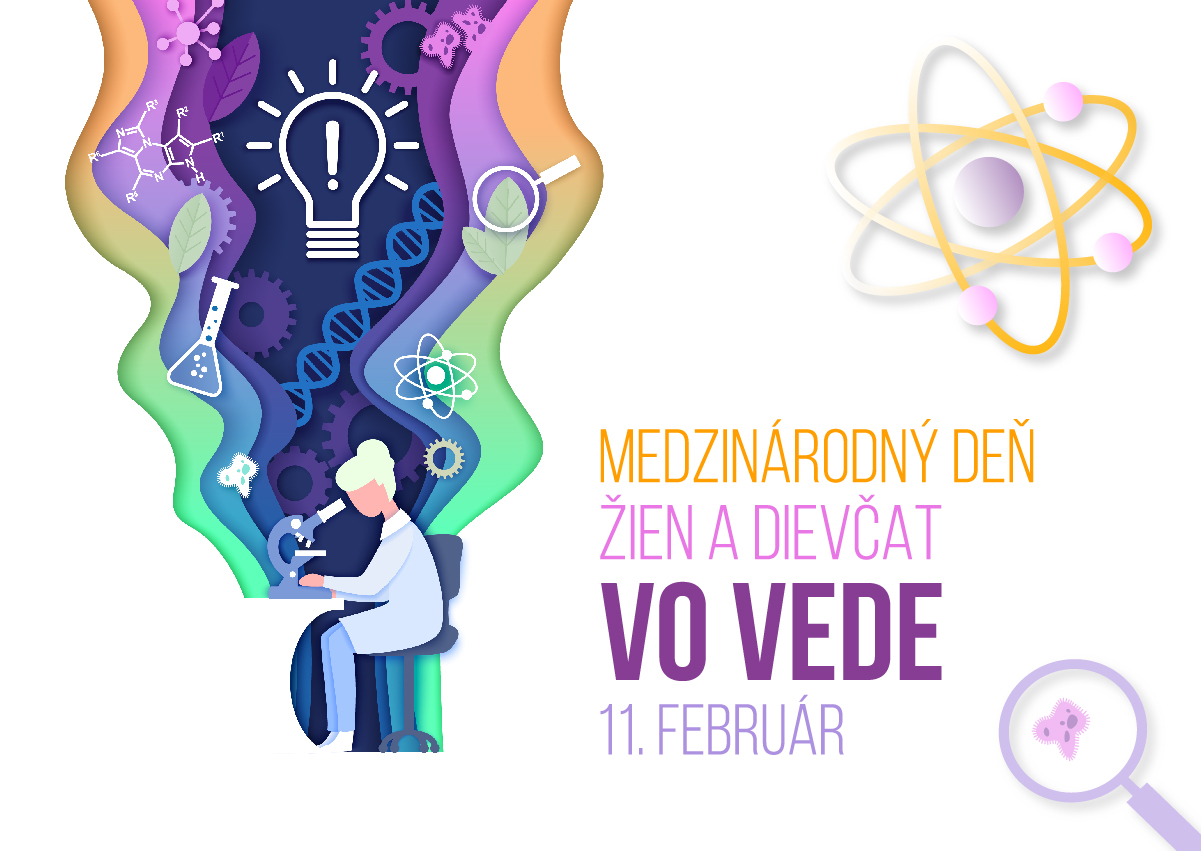
International Day of Women and Girls in Science
International Day of Women and Girls in Science (February 11) seeks to promote equal opportunities for women and girls and their participation in science. Today we aim to advocate for creating conditions (working, social, …) that would allow women to pursue a career in science, particularly in STEM areas (science, technology, engineering, mathematics).
To mark the occasion we asked Dr. Céline Merletan outstanding young scientist, to tell us more about her inspiration and career path. Dr. Merlet works as a CNRS researcher in the CIRIMAT laboratory at Université Toulouse III - Paul Sabatier working on developing multi-scale models to describe energy storage materials. She received the PRACE Ada Lovelace Award for HPC1 in 2021 for her outstanding impact on HPC in Europe. Not only has Dr Merlet decisively advanced the investigation of supercapacitors with numerous innovations; she is also active in “Femmes & Sciences" an association that promotes women in science and technology.
- When / How did you know that you wanted to be a scientist?
When I was a teenager, I wanted to be a vet. I started the studies to become one but realised that I was more attracted by other areas of science: chemistry and computer science. So I changed field by joining a chemistry engineering school in Paris (Chimie ParisTech).
- Who or what inspired you to pursue studies in the STEM areas?
During my three years at the chemistry engineering school, we had the opportunity to conduct research projects in labs. I spent three weeks in the group of Prof. Mathieu Salanne at Sorbonne Université and realised that molecular simulations is what I wanted to do. I was simulating molten salts for applications in the energy field (salts like NaCl, i.e. kitchen table salt, liquid at high temperatures). Using computer science to study phenomena relevant for understanding and improving materials / devices was so enjoyable that I decided to continue in that direction. - Did your family, friends and teachers support you in your decision to study STEM subjects?
My family was very supportive and I have the feeling this would have been the case for any topic. My parents wanted us to be able to do what we like. My teachers were also supportive. I was a bit worried when changing from biology to chemistry as I had imagined myself for a long time as a vet, so the discussions with my teachers really helped at this point. - What is the subject of your research in present? (very briefly, perhaps with an image?)
My research focuses mainly on solid-liquid interfaces in electrochemical systems, usually for energy storage systems such as batteries (used in laptops, smartphones, etc...) and supercapacitors (high power devices used in start-stop systems and for regenerative energy braking among other applications). I use computer simulations to study phenomena happening at the molecular scales in pores of nanometer size, i.e. holes of around a billionth of a meter. The joined image, extracted from a computer simulation, illustrates solvent molecules and ions (charged molecules), in green/blue/red in these pores of the porous carbon materials, in black. - What would be your message to girls, who would like to pursue their interest in STEM subjects, but hesitate to enter a field, where women are significantly underrepresented? (or something along this line…)
If women are underrepresented in some STEM subjects, this is unfortunately due to societal bias but not at all to competence or skills. Everyone should be able to do what they like without worrying about gender considerations.
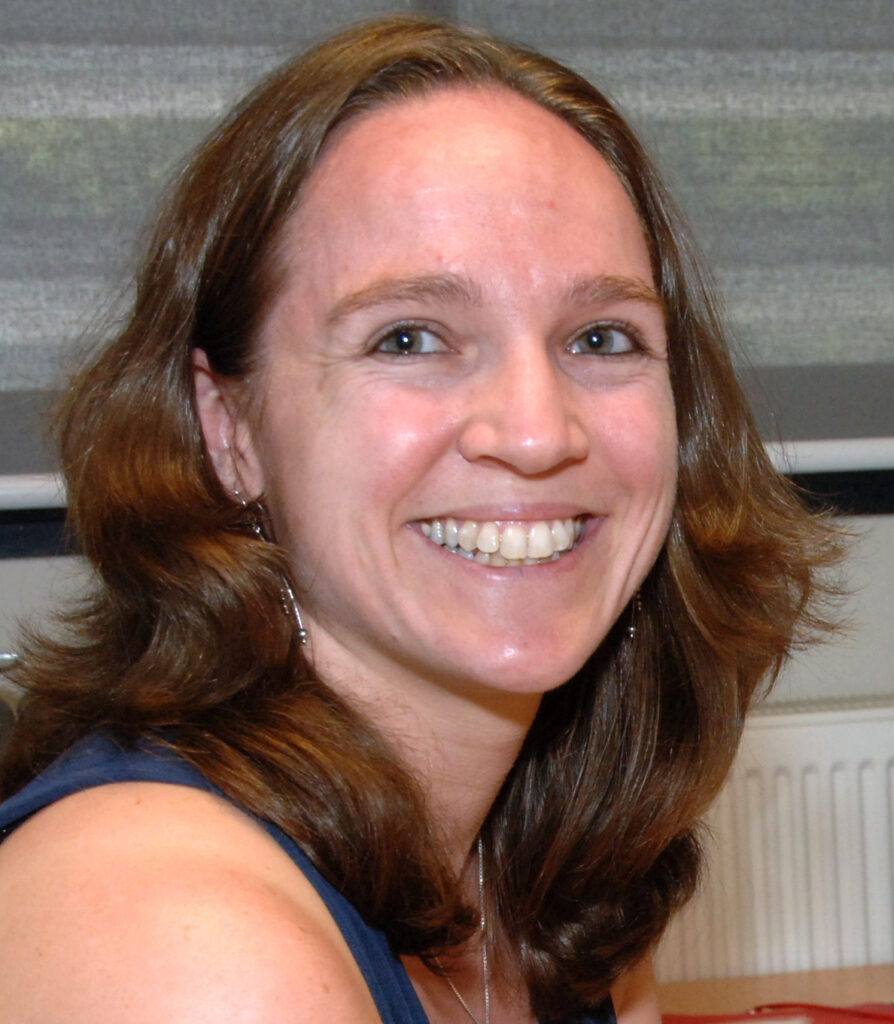
Photo by: Françoise Viala (IPBS-Toulouse/CNRS-UT3)
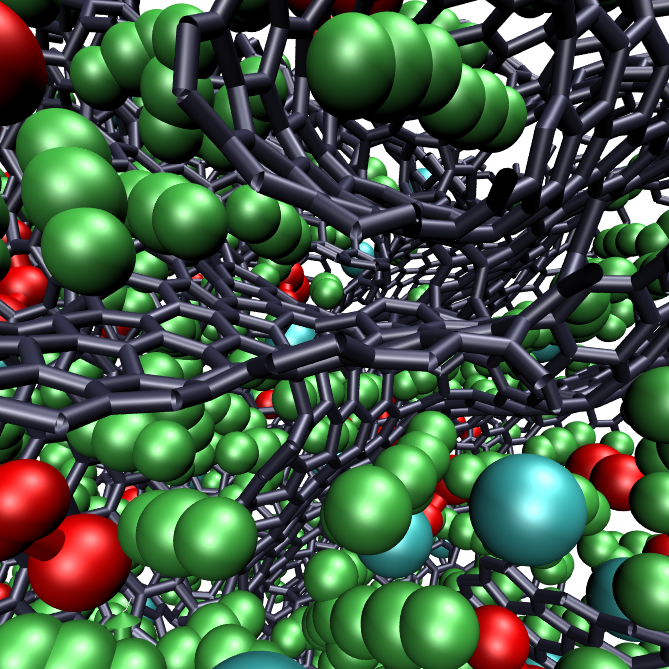
1 PRACE Ada Lovelace Award is annually awarded by PRACE to a female scientist who makes an outstanding contribution to and impact on HPC in Europe and the world, and serves as a role model for women who are at the start of their scientific careers. The award is named after the Countess of Lovelace, a British mathematician who lived in the 19th century and among else worked with Charles Babbage on the Machine they called the Analytical Engine – one of the first precursors of computers. Many historians regard Ada Lovelace’s contribution to this mechanical calculator as the very first algorithm – and herself as the first person to be rightly called a programmer.
 BeeGFS in Practice — Parallel File Systems for HPC, AI and Data-Intensive Workloads 6 Feb - This webinar introduces BeeGFS, a leading parallel file system designed to support demanding HPC, AI, and data-intensive workloads. Experts from ThinkParQ will explain how parallel file systems work, how BeeGFS is architected, and how it is used in practice across academic, research, and industrial environments.
BeeGFS in Practice — Parallel File Systems for HPC, AI and Data-Intensive Workloads 6 Feb - This webinar introduces BeeGFS, a leading parallel file system designed to support demanding HPC, AI, and data-intensive workloads. Experts from ThinkParQ will explain how parallel file systems work, how BeeGFS is architected, and how it is used in practice across academic, research, and industrial environments. When a production line knows what will happen in 10 minutes 5 Feb - Every disruption on a production line creates stress. Machines stop, people wait, production slows down, and decisions must be made under pressure. In the food industry—especially in the production of filled pasta products, where the process follows a strictly sequential set of technological steps—one unexpected issue at the end of the line can bring the entire production flow to a halt. But what if the production line could warn in advance that a problem will occur in a few minutes? Or help decide, already during a shift, whether it still makes sense to plan packaging later the same day? These were exactly the questions that stood at the beginning of a research collaboration that brought together industrial data, artificial intelligence, and supercomputing power.
When a production line knows what will happen in 10 minutes 5 Feb - Every disruption on a production line creates stress. Machines stop, people wait, production slows down, and decisions must be made under pressure. In the food industry—especially in the production of filled pasta products, where the process follows a strictly sequential set of technological steps—one unexpected issue at the end of the line can bring the entire production flow to a halt. But what if the production line could warn in advance that a problem will occur in a few minutes? Or help decide, already during a shift, whether it still makes sense to plan packaging later the same day? These were exactly the questions that stood at the beginning of a research collaboration that brought together industrial data, artificial intelligence, and supercomputing power. Who Owns AI Inside an Organisation? — Operational Responsibility 5 Feb - This webinar focuses on how organisations can define clear operational responsibility and ownership of AI systems in a proportionate and workable way. Drawing on hands-on experience in data protection, AI governance, and compliance, Petra Fernandes will explore governance approaches that work in practice for both SMEs and larger organisations. The session will highlight internal processes that help organisations stay in control of their AI systems over time, without creating unnecessary administrative burden.
Who Owns AI Inside an Organisation? — Operational Responsibility 5 Feb - This webinar focuses on how organisations can define clear operational responsibility and ownership of AI systems in a proportionate and workable way. Drawing on hands-on experience in data protection, AI governance, and compliance, Petra Fernandes will explore governance approaches that work in practice for both SMEs and larger organisations. The session will highlight internal processes that help organisations stay in control of their AI systems over time, without creating unnecessary administrative burden.
Technológie a ich vplyv na vývoj počítačov – od sériových jednoprocesorových po súčasné superpočítače
1.10.2021
MARTIN ŠPERKA
Computer museum, Centre of Operations SAS
Prezentácia stručne sumarizuje hlavné etapy urýchľovania výpočtov vplyvom vývoja technológií. Od elektrónky po systémy s desiatkami mikroprocesorov na čipe s nanometrovými spínacími prvkami umožňujúcimi implementáciu super-počítačov s masívne paralelnými architektúrami.

